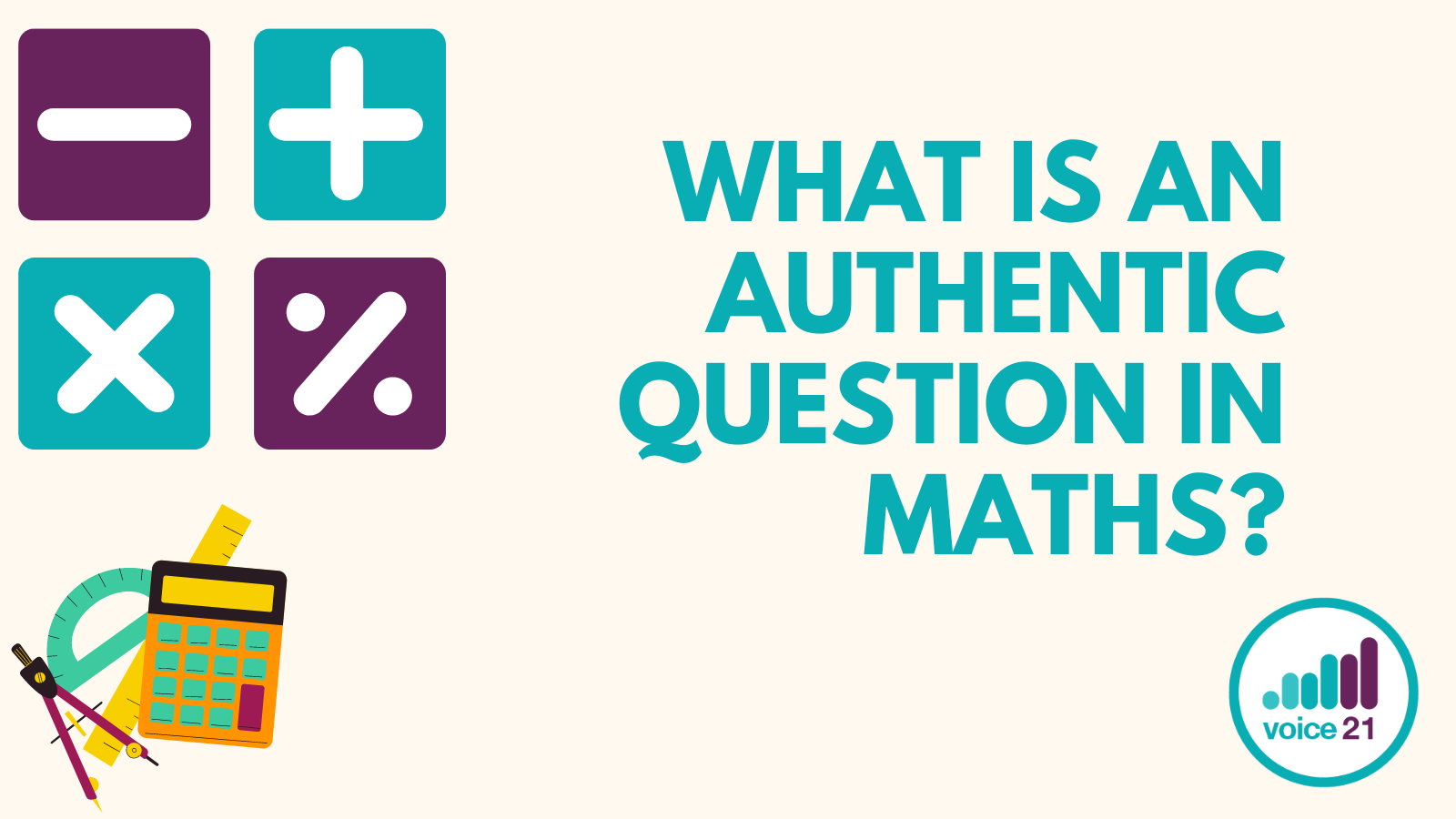This question arose during a recent workshop exploring how language enables students to capture, connect and apply their mathematical understanding. Read more from Voice 21 Educational Content Producer, Victoria Cook, as she explores this question.

On 8th March, eight teachers from secondary schools in SW England participated in a workshop that is part of an ongoing collaboration between the Boolean Maths Hub (one of 40 DfE-funded national maths hubs coordinated by the National Centre for Excellence in the Teaching of Mathematics) and Voice 21.
The enthusiasm for being together in person was contagious, and the discussions that arose throughout the day were insightful. Theory blended seamlessly with practice, as the notion of ‘Exploratory talk’ was first unpicked, and then effortlessly modelled as the discussion turned to ‘authentic questions’ in maths. Ideas were hesitant and incomplete, but the contributions of all those in the room led to a productive and purposeful discussion that furthered our collective knowledge and understanding.
An authentic question is a question without a prespecified answer (Nystrand & Gamoran, 1991). It is not a game of ‘guess what is in the teacher’s head’. When posing an authentic question, a teacher is genuinely asking the students what they think. In this way, students’ opinions and experiences are valued. In turn, this may help to increase participation in discussions, particularly amongst those students who are reluctant to share their ideas in maths for fear of being ‘wrong’.
A common perception in maths is that answers are often ‘right’ or ‘wrong’, so in our next session we are going to unpick what an authentic question in maths could look like. We are also keen to explore how such discussions help to move students from the abstract to the concrete, developing their knowledge and understanding of key ideas and tools.
For Mathematics Awareness Month, taking place in April, Voice 21 will be sharing more from Victoria as we explore how oracy can be used in Maths.
Nystrand, M., & Gamoran, A. (1991). Instructional discourse, student engagement, and literature achievement. Research in the Teaching of English, 25, 261-290.
© 2022 Voice 21. Voice 21 is a registered charity in England and Wales. Charity number 1152672 | Company no. 08165798